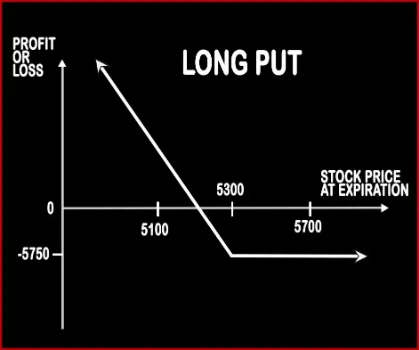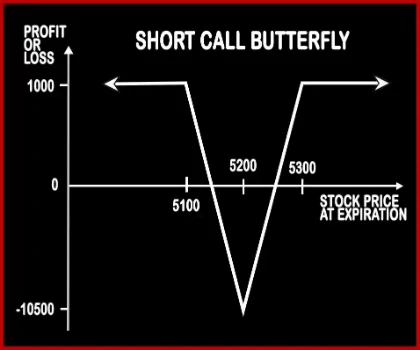Compare Strategies
| LONG PUT | SHORT CALL BUTTERFLY | |
|---|---|---|

|

|
|
| About Strategy |
Long Put Option StrategyThis strategy is implemented by buying 1 Put Option i.e. a single position, when the person is bearish on the market and expects the market to move downwards in the near future. |
Short Call Butterfly Option StrategyThis strategy is opposite of the Long Call Butterfly Strategy, a trader expects the market to remain range bound in Long Call Butterfly, but here he expects the market to move beyond strike boundaries in Short Call Butterfly. If the trader is bullish on the market’s volatility, he will implement this strategy. Here also there should be equal distance between the .. |
LONG PUT Vs SHORT CALL BUTTERFLY - Details
| LONG PUT | SHORT CALL BUTTERFLY | |
|---|---|---|
| Market View | Bearish | Neutral |
| Type (CE/PE) | PE (Put Option) | CE (Call Option) |
| Number Of Positions | 1 | 4 |
| Strategy Level | Beginners | Advance |
| Reward Profile | Unlimited | Limited |
| Risk Profile | Limited | Limited |
| Breakeven Point | Strike Price of Long Put - Premium Paid | Lower Break-even = Lower Strike Price + Net Premium, Upper Break-even = Higher Strike Price - Net Premium |
LONG PUT Vs SHORT CALL BUTTERFLY - When & How to use ?
| LONG PUT | SHORT CALL BUTTERFLY | |
|---|---|---|
| Market View | Bearish | Neutral |
| When to use? | A long put option strategy works well when you're expecting the underlying asset to sharply decline or be volatile in near future. | This strategy is meant for special scenarios where you foresee a lot of volatility in the market due to election results, budget, policy change, annual result announcements etc. |
| Action | Buy Put Option | Buy 2 ATM Call, Sell 1 ITM Call, Sell 1 OTM Call |
| Breakeven Point | Strike Price of Long Put - Premium Paid | Lower Break-even = Lower Strike Price + Net Premium, Upper Break-even = Higher Strike Price - Net Premium |
LONG PUT Vs SHORT CALL BUTTERFLY - Risk & Reward
| LONG PUT | SHORT CALL BUTTERFLY | |
|---|---|---|
| Maximum Profit Scenario | Profit = Strike Price of Long Put - Premium Paid | The profit is limited to the net premium received. |
| Maximum Loss Scenario | Max Loss = Premium Paid + Commissions Paid | Higher strike price- Lower Strike Price - Net Premium |
| Risk | Limited | Limited |
| Reward | Unlimited | Limited |
LONG PUT Vs SHORT CALL BUTTERFLY - Strategy Pros & Cons
| LONG PUT | SHORT CALL BUTTERFLY | |
|---|---|---|
| Similar Strategies | Protective Call, Short Put | Long Straddle, Long Call Butterfly |
| Disadvantage | • 100% loss if strike price, expiration dates or underlying stocks are badly chosen. • Time decay. | • Limited rewards, usually offer smaller return. • Profitability depends on the significant movement of stocks and options prices. |
| Advantages | • Limited risk to the premium paid. • Less capital investment and more profit. • Unlimited profit potential with limited risk. | • Even if the market is highly volatile, the risk exposure remains limited. • Without any extra investment, you can receive your premium. • Able to book profits even when the price movement cannot be predicted. |